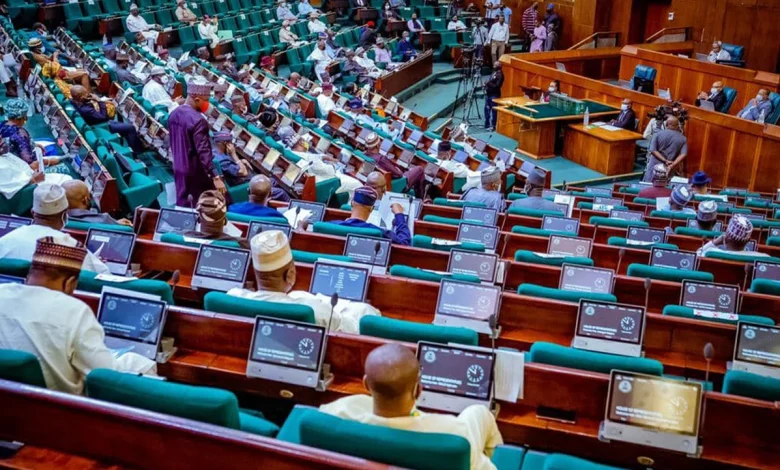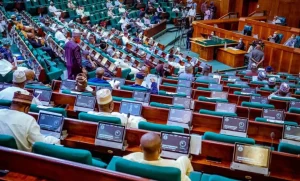
67 REPS, NAVY, NIMASA, OTHERS REJECT MARINE CORPS BILL

A proposed Bill to establish the Nigerian Marine Corps faced widespread rejection on Monday during a public hearing conducted by the House Committee on Navy.
The Bill, titled “A Bill for an Act to Establish Nigerian Marine Corps to Promote Maritime Security” (HB 225), seeks to create a new federal agency to enhance maritime security and manage Nigeria’s blue economy. Sponsored by Rep. Alex Egbona (Cross River), the Bill passed its second reading on November 30, 2023, and was referred to the committee for further deliberation.
However, several key stakeholders, including 67 members of the House of Representatives, the Nigerian Navy, the Nigerian Maritime Administration and Safety Agency (NIMASA), the Nigerian Shippers Council, and multiple Civil Society Organisations (CSOs), strongly opposed the Bill.
Speaking on behalf of 66 other House members, Rep. Philip Agbese, Deputy Spokesperson of the House and representative of Ado/Okpokwu/Ogbadibo Federal Constituency of Benue State, argued that the proposed Marine Corps would duplicate the functions of existing agencies like the Nigerian Navy and NIMASA.
“It is our duty to scrutinize legislation to ensure it aligns with national interests and avoids creating redundant structures. This Bill is counterproductive and imposes unnecessary financial demands on the government,” Agbese said.
He highlighted the potential for operational inefficiencies, jurisdictional conflicts, and logistical strain if the Bill were enacted. Agbese called for its outright rejection, stressing the need for fiscal responsibility and streamlined maritime governance.
The Nigeria Police Force, represented by SP Nandom Vongjen, also rejected the Bill, describing it as ill-advised and likely to create overlaps with existing maritime security responsibilities.
“The proposed Marine Corps risks proliferating maritime security outfits and creating a parallel unit of the armed forces,” Vongjen said, recommending that existing agencies be strengthened instead.
Similarly, the Nigerian Navy, represented by Rear Admiral Olusegun Ferreira, opposed the Bill, stating that existing agencies already handle maritime enforcement and defense effectively. Ferreira called for optimization of resources within these agencies rather than creating new structures.
NIMASA’s Coordinator for the Abuja Zonal Office, Mrs. Moji Jimoh, and Nigerian Shippers Council’s Director of Legal Services, Mr. Bala Saleh, echoed these concerns. They argued that strengthening current frameworks would enhance maritime security without incurring additional costs or bureaucratic complications.
Civil Society Organisations unanimously opposed the Bill as well. Representatives, including Abdullahi Bilal of the Security Analysts & Research Forum in Africa, and Okwa Daniel, Executive Director of the Centre for Social Justice, Equity & Transparency, described the Bill as unnecessary and urged the House to reject it during the third reading.
Chairman of the House Committee on Navy, Hon. Yusuf Gadgi, assured stakeholders of an impartial review process. He pledged that due diligence would be observed in legislative actions on the Bill.
“The Committee remains neutral and will ensure all views are carefully considered before making a decision,” Gadgi said.
The strong opposition from lawmakers, security agencies, and civil society casts doubt on the Bill’s future, with many stakeholders advocating for improved cooperation and resource optimization among existing agencies instead of establishing a new Marine Corps.
![]()
